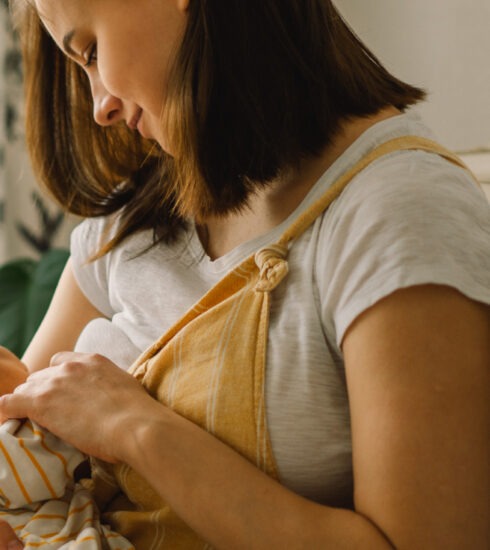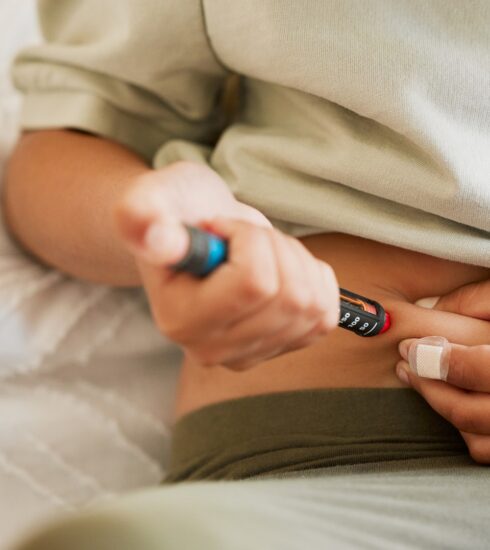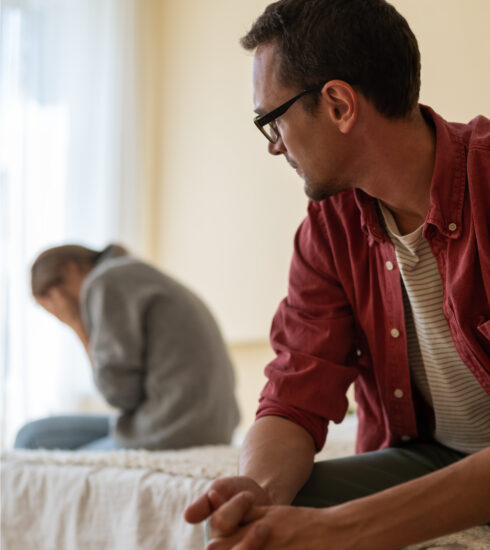Welcome to Parenthood
- Dr. Manishi Bansal, Mohali

- April 20, 2024
Welcome to Parenthood
Your guide to newborn care
You have survived through 9 months of pregnancy and have made it to labor pain and delivery. So, the new excitement of life is in front of you. It is the time to head home with your bundle of joy & begin a new life.
Once you are home, you soon realize that you have no idea what you are doing or what you must do next, unless you have your mother-in-law, your mother or someone older to guide you.
Our aim is to precisely touch upon multiple aspects that are important for new parents, hence we will have this topic covered across two issues of Healthoscope.
Handling the newborn baby
If you have not spent much time with newborn babies in the past, then their fragility may be intimidating. Here are few basics to remember:
- Wash your hands first: Newborns do not have a strong immunity and hence they are susceptible to infection. Make sure that you or anyone who handles the baby has clean hands.
- Be careful to support the baby’s head and neck: Support the head of the baby when you are holding him/ her upright or when you lay him or her down.
Position of baby during sleep
- Healthy infants should be placed on their backs for sleep, as this is the safest position for an infant to sleep.
- A firm crib mattress covered by a sheet is the safest bedding. Keep the baby beside the mother’s bed. Avoid keeping baby in bed during sleep.
- Keep all soft toys & stuffed animals out of your child’s crib throughout infancy.
- Keep the temperature in the baby’s room comfortable (if using AC temperature should be set at 27- 29 degrees) & do not place the baby near air-conditioning vents or heating vents, open windows.
- Use sleep clothing (such as a one-piece sleeper), you can use a baby blanket to wrap the baby but do not keep them loose.
Changing the diapers
A baby dirties the diaper about 10 times in a day. So, it is going to be a hectic task for you to change the diaper every time. You must change the diaper immediately if the baby passes stool. Otherwise change it either if it is heavy or after 4- 6 hrs. Before beginning the process of changing the diaper make sure that you have all the supplies within your reach.
Bathing basics
You give only a sponge bath to your baby until at least up to the umbilicus has fallen off, clean & dry. Give him or her bath at least three times in a week. Frequent bathing may cause skin dryness. For bath use a soft, clean washcloth or sponge, unscented soap & shampoo, warm water (& not hot water) & soft, clean towel or blanket.
Oil massage
In our culture, many babies are given oil massages daily. Little bit of oil that is massaged on the skin can get absorbed, however it is not necessary for the baby’s well-being, as the baby will get its full nutrition from the breast milk that the mother gives to her baby.
Oil may cause a rash to your baby so you can put oil in a small area for first 3 days to check whether the baby is sensitive to it.
Which oil to use
In different parts of India different types of oil is used, for example in East India & U.P., mustard oil is used, in South India coconut oil is used, & in Punjab Ghee is used. All these oils are fine, & it does not make any difference as to which oil is used. Olive oil can also be used. Any of this will be fine if it does not cause rash. Mustard oil has the maximum chance of rash.
Taking care of the umbilicus (navel)
It takes 7 to 14 days before the umbilicus dries up & falls off. You must take care that it remains clean & dry otherwise there is a chance that germs may collect over it & it may get infected. The best way to take care of the umbilicus is to dry it with soft cloth & then apply surgical spirit (with alcohol swabs) 3 to 4 times a day. However, some doctors may advise ointment or antiseptic powder to be applied over it. So, follow your doctor’s advice.
How do I know if it is infected or not?
If the base is red, some pus is oozing out of it & has a bad smell then it may be infected. Contact your doctor in such a case. Your doctor may take a swab from this for testing & prescribe antibiotics if necessary.
Diaper & diaper dermatitis
You can use either cloth diapers (nappies) or disposable nappies. Cloth diapers are cheaper & do not pollute the environment but they are inconvenient as compared to the disposable.
Diaper rash
Babies get this commonly because of the use of the diaper. This is due to the irritation of the skin by the contact of stool & urine. Typically, there will be red colored rash at the diaper area & at times. In a severe case, there will be peeling of skin.
Prevention & treatment of the nappy rash
Change the diapers as often as possible. Before putting on the diaper, clean the skin with cotton soaked in lukewarm water, tap dry it & then apply a layer of nappy rash cream. It is better to use a zinc based one, but any other cream or coconut oil can be used. The idea is to create a barrier between the skin and the diaper. Do not use powder as it forms a paste with the moisture, & this irritates the skin. If the rash is very severe, you will have to contact your doctor.
Prevention of infection in a newborn baby
Newborn babies can get infection very easily as they have extremely low immunity. Therefore, to prevent this, anyone who is touching or picking up the baby should wash his or her hands or use hand sanitizers &, as far as possible, those who have a cold and cough should not come near the baby. You must be extra cautious about this when many visitors with their children come to visit your baby. Hand hygiene should be followed even after you are back from the toilet.









